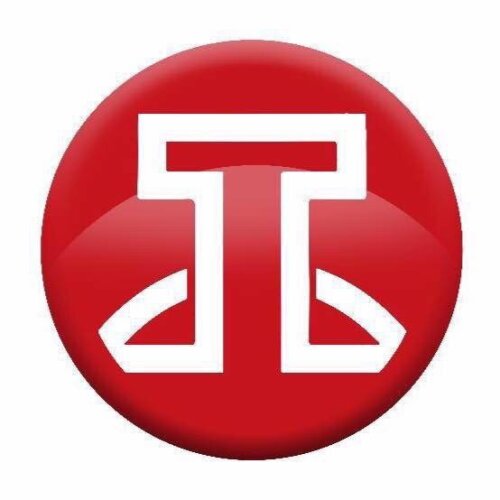Best Energy Regulatory Law Lawyers in Haiphong
Share your needs with us, get contacted by law firms.
Free. Takes 2 min.
List of the best lawyers in Haiphong, Vietnam
About Energy Regulatory Law in Haiphong, Vietnam
Energy Regulatory Law in Haiphong, Vietnam, encompasses the legal framework that governs the generation, transmission, distribution, and use of energy resources, especially electricity, petroleum, and renewables. These laws are designed to ensure the safe, reliable, and efficient supply of energy while protecting consumers and supporting national development. As Haiphong is a major industrial and port city, energy regulation is a critical component for both economic growth and environmental protection. The regulatory system aligns with national laws but also takes into account specific local factors such as industrial energy demand, port activities, and the integration of renewable energy projects.
Why You May Need a Lawyer
Navigating Energy Regulatory Law can be complex, particularly for businesses, local investors, and international firms operating in or around Haiphong. Common situations where individuals or companies may require a legal professional include:
- Starting a new energy-related project, such as building a power plant or investing in renewables
- Applying for operating licenses or permits from local and national authorities
- Dealing with energy tariff disputes or contract negotiations with power suppliers
- Ensuring compliance with regulations on environmental protection and energy efficiency standards
- Resolving disputes related to land use for energy infrastructure projects
- Responding to investigations or enforcement actions from regulatory agencies
- Participating in the national grid or dealing with electricity purchasing agreements
- Understanding tax obligations and incentives related to energy investments
A skilled lawyer can help clarify obligations, advocate in cases of dispute, and ensure that your activities comply with both local and national regulations.
Local Laws Overview
Haiphong, like all Vietnamese cities, operates under the national legal framework for energy regulation, most notably the Law on Electricity (amended 2012), the Law on Energy Efficiency and Conservation, and various decrees, circulars, and regulatory decisions from the Ministry of Industry and Trade (MOIT). Locally, the Haiphong Department of Industry and Trade plays a crucial role in implementing these laws. Key aspects of the regulatory landscape include:
- Licensing: All energy projects require specific permits and licenses, including environmental impact assessments and construction approvals.
- Tariffs: Electricity prices are set or approved by the state to protect consumers and ensure fair pricing for suppliers.
- Market access: Both domestic and foreign investors can participate in the energy market, but must comply with strict investment procedures and safety requirements.
- Environmental regulation: There are rigorous standards for emissions, waste management, and efficiency, particularly for coal and traditional fuel sources.
- Renewable energy: Incentive policies support solar, wind, and biomass projects, though licensing and grid connection processes can be complex.
- Dispute resolution: Most energy disputes fall under administrative or civil law, with established mechanisms for mediation, arbitration, or litigation.
Frequently Asked Questions
What types of energy projects require government approval in Haiphong?
All commercial-scale energy projects, including electricity generation, transmission lines, and large renewables projects, require government approval and licensing.
Who regulates the energy sector in Haiphong?
The Ministry of Industry and Trade is the primary national regulator, while the Haiphong Department of Industry and Trade manages local implementation and oversight.
What are the main legal challenges for renewable energy investors in Haiphong?
Challenges include lengthy permitting processes, grid connection limitations, land use rights, and adapting to frequent regulatory updates.
Are there incentives for renewable energy development?
Yes, incentives such as preferential feed-in tariffs, land use support, and tax benefits exist for select renewable projects, subject to eligibility and government approval.
How are electricity tariffs determined?
Tariffs are set or approved by the government to balance investor interests, industrial development, and consumer protection.
What environmental rules apply to energy operators?
Operators must comply with national regulations on emissions, waste management, and environmental impact assessments as part of their licensing.
Can foreign investors participate in the energy sector?
Yes, but they must follow specific investment procedures and may face restrictions in certain strategic sectors according to Vietnamese law.
What should I do if I have a contract dispute with a power supplier?
First, attempt negotiation. If that fails, mediation, arbitration, or civil litigation are available legal routes for dispute resolution.
Are there penalties for non-compliance with energy regulations?
Yes, penalties can include fines, suspension or revocation of licenses, and project shutdowns depending on the severity of the violation.
Do I need a lawyer to launch an energy project?
While not mandatory, engaging a lawyer is strongly recommended due to the complexity of regulatory, licensing, and land use issues.
Additional Resources
If you need further information or assistance, consider the following organizations and governmental bodies related to Energy Regulatory Law in Haiphong and Vietnam:
- Ministry of Industry and Trade (MOIT) - Regulatory authority for energy in Vietnam
- Haiphong Department of Industry and Trade - Local regulator and resource for licensing and compliance
- Vietnam Electricity (EVN) - Main electricity utility and market operator
- Vietnam Energy Association - Provides industry updates and policy insights
- Vietnam Chamber of Commerce and Industry (VCCI) - Offers business support, including for foreign and domestic energy investors
- Law firms and consultancies specializing in energy and infrastructure law
Next Steps
If you are considering an energy project or facing an energy-related legal issue in Haiphong, these are your next steps:
- Clearly define your objectives and gather relevant documentation related to your project or case.
- Consult with a qualified lawyer who specializes in energy regulatory law and is experienced in Haiphong’s local context.
- Reach out to local authorities or business associations for guidance on specific licensing or regulatory requirements.
- Stay updated on policy changes that may impact your operations or obligations.
- If you anticipate a dispute, seek legal advice early to explore negotiation or alternative dispute resolution options before resorting to litigation.
Having sound legal support can help manage risks, ensure regulatory compliance, and enhance the long-term success of your energy-related venture in Haiphong.
Lawzana helps you find the best lawyers and law firms in Haiphong through a curated and pre-screened list of qualified legal professionals. Our platform offers rankings and detailed profiles of attorneys and law firms, allowing you to compare based on practice areas, including Energy Regulatory Law, experience, and client feedback.
Each profile includes a description of the firm's areas of practice, client reviews, team members and partners, year of establishment, spoken languages, office locations, contact information, social media presence, and any published articles or resources. Most firms on our platform speak English and are experienced in both local and international legal matters.
Get a quote from top-rated law firms in Haiphong, Vietnam — quickly, securely, and without unnecessary hassle.
Disclaimer:
The information provided on this page is for general informational purposes only and does not constitute legal advice. While we strive to ensure the accuracy and relevance of the content, legal information may change over time, and interpretations of the law can vary. You should always consult with a qualified legal professional for advice specific to your situation.
We disclaim all liability for actions taken or not taken based on the content of this page. If you believe any information is incorrect or outdated, please contact us, and we will review and update it where appropriate.












